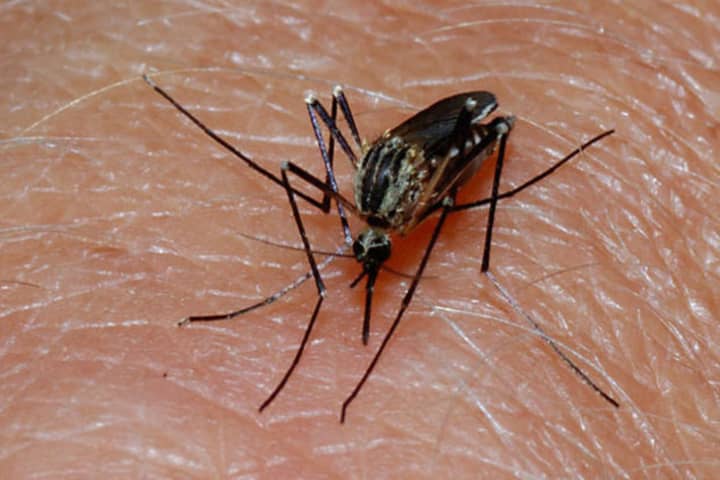The infected mosquito was trapped Tuesday, July 28, at coastal Cove Island Park and the test results were announced Wednesday by the Connecticut Agricultural Experiment Station.
Stamford plans to take steps to reduce the mosquito breeding.
"We will begin to larvicide all catch basins throughout the city next week with an additional treatment in September,” Anne Fountain, director of Health and Social Services for the City of Stamford, said in a statement.
She also urged residents to take precautions to avoid mosquito bites.
“It is important that residents take precautions to avoid contact with mosquitoes,” Fountain said. "We know that mosquitoes are most active at dawn and dusk. Simple measures including wearing long pants, long-sleeved shirts, head coverings and socks will minimize exposure to mosquitoes, which may carry the virus. The use of insect repellant is also helpful."
Other precautions are to minimize outdoor activities at dawn and dusk when mosquitoes are more plentiful, ensure door and window screens are tight fitting and in good repair; and wear long-sleeved shirts and long pants.
Residents can also help to minimize the number of mosquitoes.
"In addition, we urge people to seek out and empty standing water in and around their homes," Fountain said.
Residents should dispose of water-holding containers, such as ceramic pots; drill holes in the bottom of recycling and trash containers; clean clogged gutters; turn over objects that may trap water when not in use such as wading pools and wheelbarrows; and clean and chlorinate swimming pools, and when not in use, use pool covers and drain, the state said.
The West Nile virus can cause fever, headache, body aches, nausea, vomiting or a skin rash. In rare cases, some people develop a severe illness of the nervous system that can also include neck stiffness, disorientation, loss of consciousness, tremors, muscle weakness and paralysis and even death. West Nile poses a larger danger to people over 50.
Infected mosquitoes were also trapped last week in Guilford and New Haven and earlier this summer in Waterford.
To monitor the West Nile virus, the Connecticut Agricultural Experiment Station has trapping stations in dozens of cities and towns throughout the state from June through October.
For additional resources and information on West Nile virus and mosquito management, check:
- The Department of Public Health website at www.ct.gov/dph
- The Connecticut Agricultural Experiment Station Web site at www.ct.gov/caes
- The Centers for Disease Control and Prevention website at www.cdc.gov/westnile
Questions can also be directed to the Director of Environmental Inspections Ronald Miller at the City of Stamford Department of Health and Social Services at 203-977-4363.
Click here to follow Daily Voice Stamford and receive free news updates.


